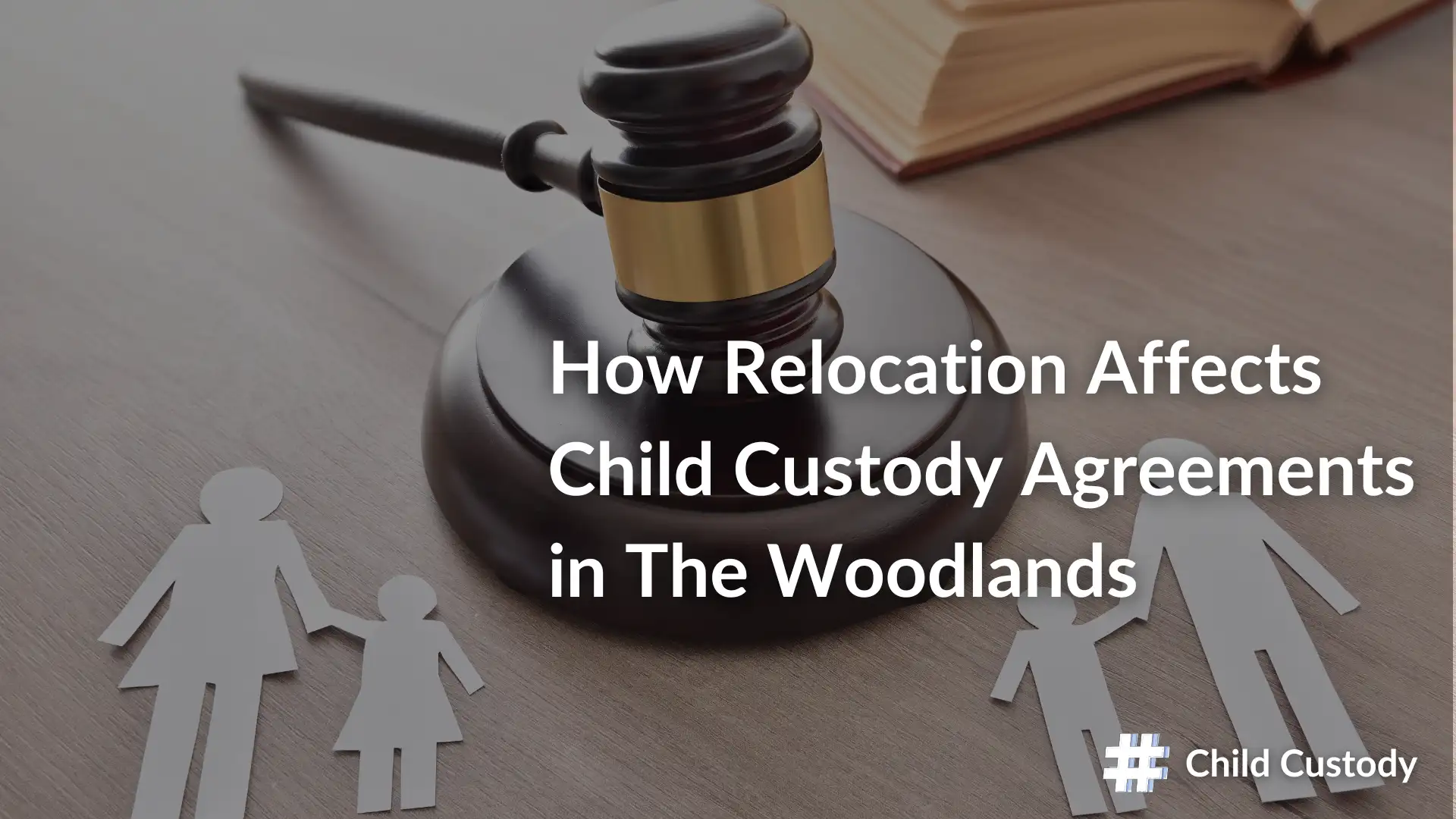
If you’re thinking about relocating, or if your child’s other parent is planning a move, it’s a good idea to understand how that can affect your custody agreement—especially in The Woodlands. Judges look at many factors before signing off on a move, and being prepared can make a big difference in how things play out.
What Are Relocation Laws in Child Custody Cases?
In Texas, if the parent with primary custody wants to move—especially outside the area covered by a geographic restriction—they’ll have to take it to court. Since relocation changes the current setup, it’s treated as a custody modification.
Geographic restrictions are usually built into the original custody order and often keep the child’s residence limited to a certain county, like Montgomery or Harris County. The idea is to keep both parents actively involved. If one parent wants to move outside that zone, they’ll have to convince the court that the move is truly in the child’s best interest—not just what works better for them.
How Relocation Affects Custody Agreements
Relocation can seriously affect the non-moving parent’s time with the child, travel logistics, and the child’s bond with both parents. Because of that, courts don’t just rubber-stamp these requests. They look at several different factors before making a decision.
They’ll start by asking why the parent wants to move. A job opportunity or escaping a harmful situation usually holds more weight than a move based on personal preference. The court also looks at how the move could impact the child—things like school stability, emotional development, and social life. If both parents currently share close to equal time, the court may see relocation as too disruptive. Judges also consider whether the move would make it harder for the other parent to stay involved. This is an important consideration in custody cases. Sometimes, the court will weigh whether alternative visitation—like longer school breaks or regular video calls—can still keep the relationship strong.
Under Texas Family Code § 156.101, a judge can approve a relocation by modifying the custody order, but only if it benefits the child. That’s a rigid bar to meet, especially if the other parent is pushing back.
Steps to Take Before Relocating

Your first step should be talking it through with the other parent. If you’re both on the same page and can update the parenting plan together, that makes things a lot easier. Just make sure you put the agreement in writing and get it approved by the court.
If you know there is going to be a disagreement, you’ll need to file a petition to modify the custody order. A judge will take a close look at your situation and decide based on what’s best for your child. That means you’ll want to come prepared with solid reasons. These could include how the move would benefit your child’s schooling, emotional health, or overall stability.
If you’re the non-custodial parent and find out about a possible move your ex is planning, don’t sit on it. If the relocation might cut into your time with your child, you’ll need to submit a filing to the court to object.
Legal Support for Relocation and Custody Modifications
Custody modification cases tied to relocation can become complicated fast. Whether you’re trying to move or hoping to stop a move that could affect your parenting time, an experienced family law attorney can help protect your rights—and your child’s well-being.
BB Law Group PLLC understands the local dynamics of The Woodlands and how Texas courts approach relocation laws in child custody cases. Our team knows what it takes to build a strong argument and guide you through each step of the legal process.
Talk to a Family Law Attorney in The Woodlands
Relocation and custody issues aren’t just legal matters—they’re personal. You need a lawyer who listens, prepares thoroughly, and keeps your child’s future front and center. If you’re facing a potential move or custody modification, BB Law Group PLLC is ready to help.
Contact us online to schedule a consultation. You can also call (832) 534-2589 to speak with someone directly.
